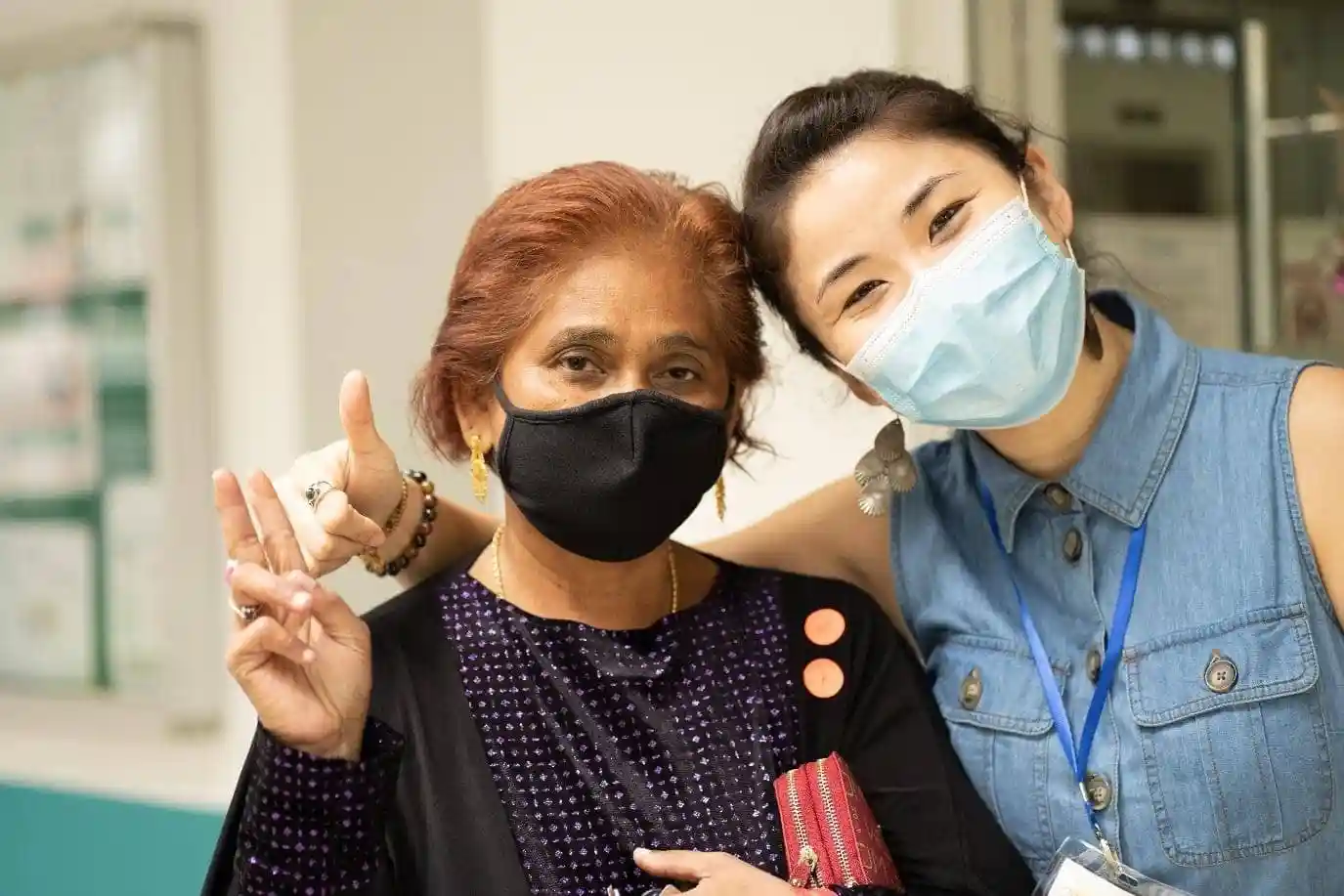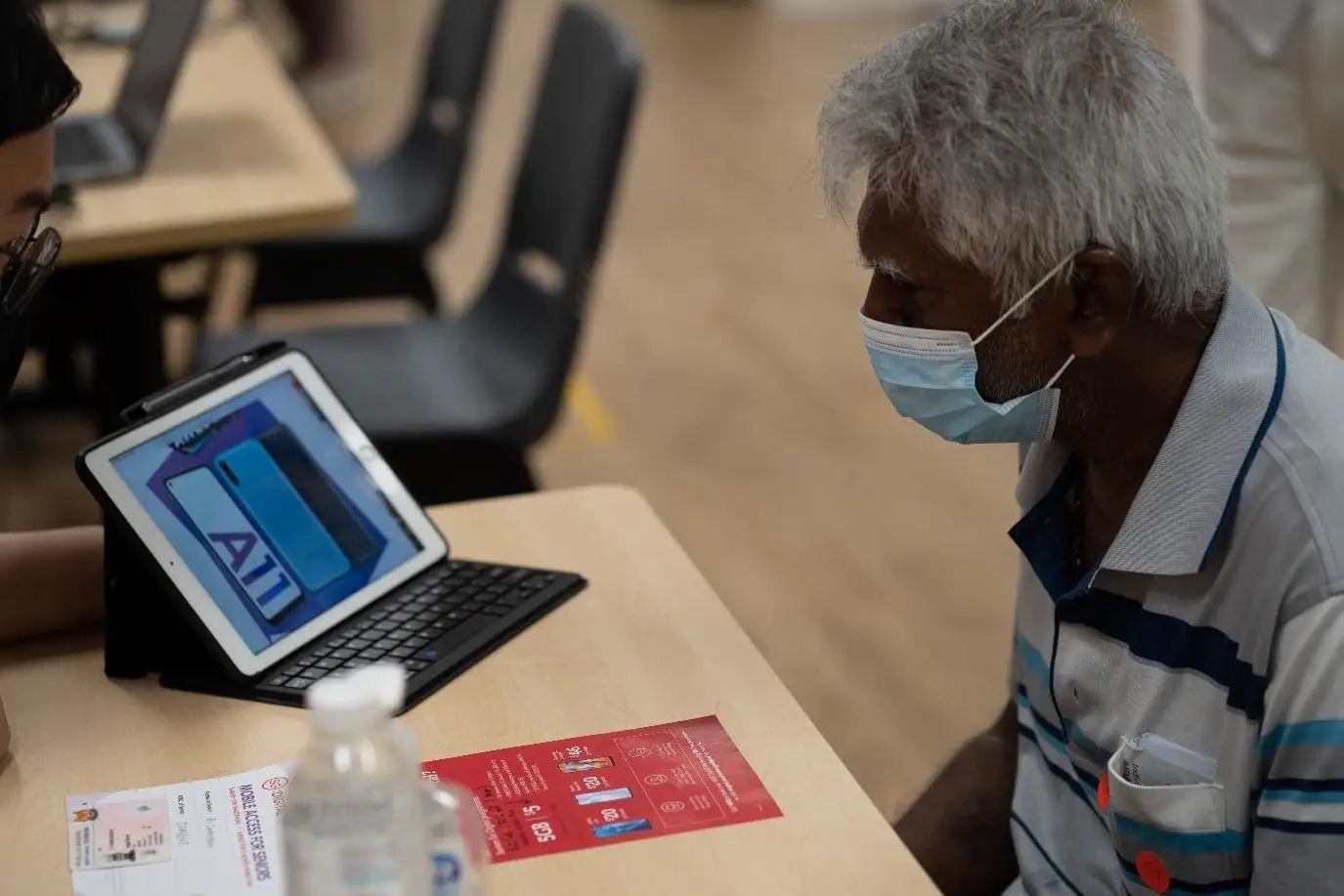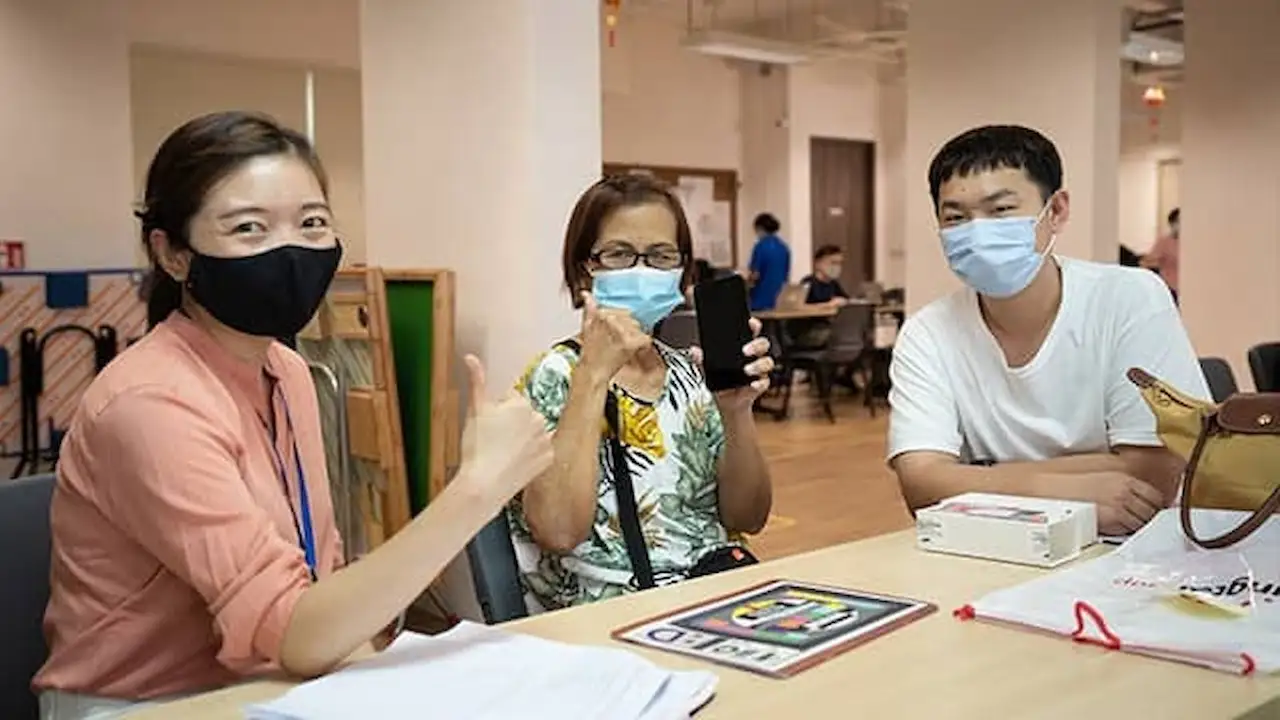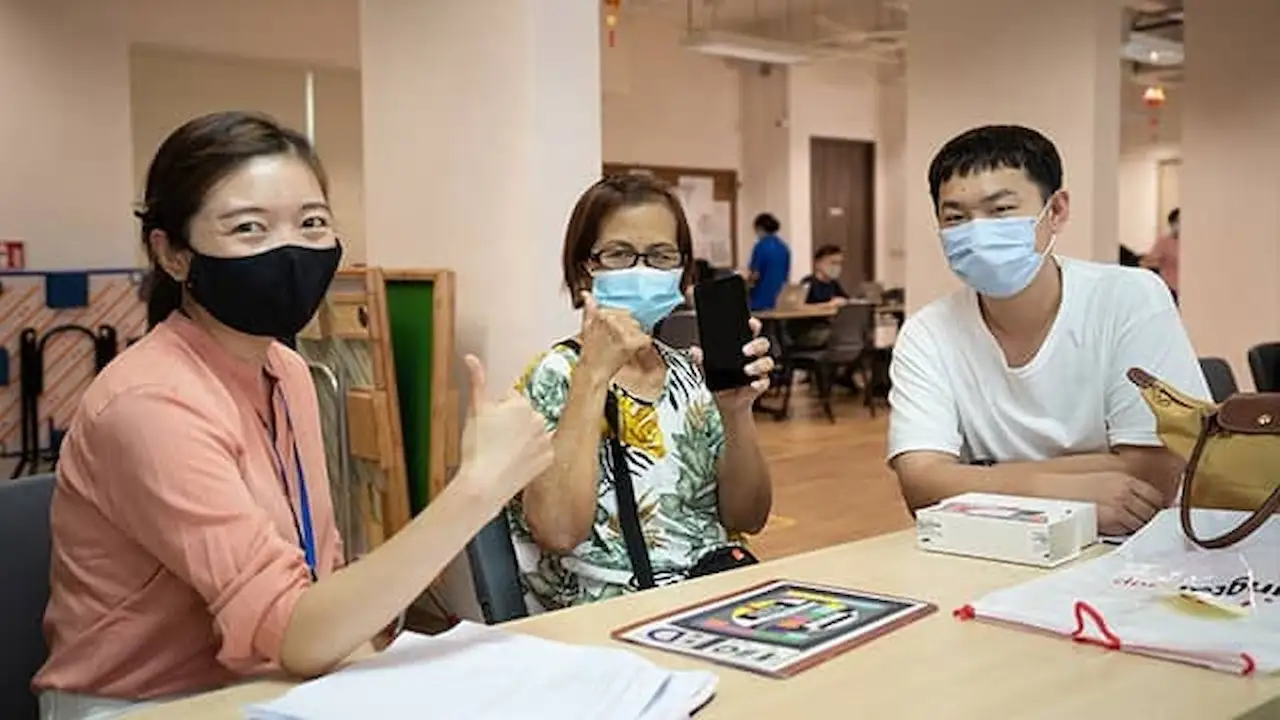Singapore’s seniors have lived through some of life’s hardest challenges from rebuilding a nation post-war to enduring economic crises and surviving SARS. But nothing could quite prepare them to deal with a global pandemic like COVID-19 – especially when social distancing measures were put in place in 2020.
As day trips to the senior care centres were disrupted, supermarket runs had to be carefully planned, and visits from family members and friends stopped, TriGenerational Homecare (TriGen) noticed a divide unfolding. While younger people – a generation who grew up with technology – were able to easily adapt to moving their lives online, some who are in their 60s or older struggled with a growing sense of isolation and loneliness.
Joanne Lee, a physiotherapist who is part of TriGen’s operations committee, recalls, “A lot of the things they do to get by in life are done in person. Not being able to do these things was stifling, and the lack of interaction was starting to affect them.”
Out Of A Pandemic, New Problems Arise
Before the pandemic happened, TriGen had already established a network that looked out for seniors. Since 2014, care teams led by university students or healthcare would pop in to check on the elderly folk living near the hospital and befriend them. They help seniors with medical needs such as checking on their blood pressure, doing basic wound care and physiotherapy, and teaching them health education. When necessary, TriGen also coordinates efforts to get financial aid to those who need it.
COVID-19 brought about a new set of problems. As the pandemic unfolded and everyone stayed home, TriGen realised how detrimental the long-term efforts would be on seniors who had no access to technology, especially for those who lived alone.
Dr Kennedy Ng, TriGen’s co-founder and an oncologist at the National Cancer Centre Singapore, says, “Anything could happen to them and no one would know. We thought about what we could do to help and how we could equip them by connecting them back to their supporters and community partners. Could we provide them with a lifeline?”
Preventing A Digital Divide
The desire to help these seniors get through the pandemic started a new conversation, which brought Project Wire Up to life.
Working with partners such as SGH’s Population Health & Integrated Care Office (PHICO), IMDA, NTUC Health, Montfort Care and Radin Mas Community Centre, the plan was simple: equip each senior with a smartphone, an internet connection and a teacher to help them use these well.
Joanne, who came up with the initiative and is the lead on Project Wire Up, explains, “Equipping seniors with digital skills empowers them to build meaningful connections with others. It also gives them increased access to information and services, enabling them to stay relevant and age well today.”
Project Wire Up initially began involving seniors from Singapore General Hospital’s Hospital to Home programme, as they are already under TriGen’s care. Moving forward, TriGen and SGH’s PHICO have plans to formalise their relationship to develop a TriGen@SGH to rope in and empower the residents living in rental flats around SGH like Bukit Merah, Tiong Bahru and Bukit Ho Swee.
When they had once started with 40 volunteers, there are today now about 115 volunteers, each of whom will take on at least two seniors. They must commit to having at least six sessions over three months and ideally speak a mother tongue language to communicate with the older folk better. Project Wire Up trains volunteers using video tutorials and guides, and matches them with a suitable candidate. Some of the lessons they teach include: how to use WhatsApp, make video calls and search for things on the internet.
TriGen assists seniors with getting new subsidised smartphones through the IMDA Mobile Access Scheme. For those who cannot afford this or are not eligible, TriGen provides seniors with second-hand smartphones which it gets through public donations. It also helps find suitable data plans for the user.

Joanne explains, “We work on a three-pronged approach: Equip, Train and Connect. Having a phone doesn’t help if they don’t know how to use it, and not being able to contact anyone with it will still leave them socially disconnected, especially in the time of a pandemic .”
Forging New Connections
So far, people from all walks of life, ranging from teenagers to people in their 60s, have signed up. Some volunteers even tag-team with their families or friends. Dr Ng is particularly encouraged by the friendships some of the youths have struck with the seniors. For example, one of the volunteers took the senior she was teaching out for a Chinese New Year meal.
He says, “Young people move like fish in water when they use technology, while older folk are thrown into this. It’s a perfect opportunity to bond together as the younger ones teach the seniors digital skills. They feel a sense of accomplishment volunteering and they get friendships out of it too.”
For SGH pharmacist Juliana Shariq Mujtaba, being part of Project Wire Up was a chance to return to volunteering. She signed up after a friend put up a Facebook post about TriGen scouting for volunteers.
She was assigned to two families and communicated with them in a mixture of English and Malay. One of them was a couple, where the husband has poor vision. Juliana taught him to record voice messages so that he did not have to text. She also helped him switch from using a prepaid SIM card to post-paid SIM-only plan, which allowed him to save money in the long run. His wife was keen to learn how to use various apps like Grab to call for a ride instead of flagging a cab, and AXS to pay the bills quickly.
Juliana says, “They’re a nice couple and are friendly with me. So now, I visit them even though I’m done teaching. I just visit to listen to his life stories, help them with their medication and errands or have lunch with her.”

For many of the seniors, using a smartphone for the first time elicited a range of responses. Some looked at the devices with apprehension because of the noises they made, or they were unable to exit apps or web pages. But others were excited to learn what they could do with their devices. One senior even offered to teach his neighbour how to use a smartphone after mastering Project Wire Up’s programme in just one session.
Dr Ng says there is meaning in paying it forward. “When you can teach someone, you become relevant. That’s what keeps people going. They find satisfaction and purpose to go on to do what they do. When you have no purpose, life becomes just life.”
Planning Ahead To Accommodate More
Project Wire Up aims to reach out and equip at least 200 seniors with digital skills by the end of June 2021. At the same time, the Project Wire Up team is doing research and conducting surveys to see how effective their efforts have been. This will help them plan and tweak their content and outreach efforts for the next phase of the project.
TriGen wants to accommodate those who wish to connect while balancing requests from those who wish to remain without a smartphone. Dr Ng says that some seniors have declined to take part in Project Wire Up because they may have physical or mental issues that prevent them from using the phone, or their families discourage them from using a smartphone as they are worried about being charged for random services online.
Dr Ng says, “We need to recognise that people have the right to say that they don’t want to be a part of this. As we move forward to be inclusive, there must be active steps to bring down barriers, but we should recognise that some people need help in other ways. Everyone in Singapore should be encouraged to keep in touch. It’s part of a broader message that we shouldn’t be disconnected and detached.”
There are many ways you can get involved with Project Wire Up or get your own project going:
- Sign up here to volunteer: https://www.trigen.sg/healthstart-volunteer-recruitment
- If you can donate an old phone with a charger, fill out this form: https://forms.gle/1q7WnB1dALTVgMWPA
- Learn how you can start an initiative that helps build a digitally inclusive society or contribute to the Digital for Life Fund.













